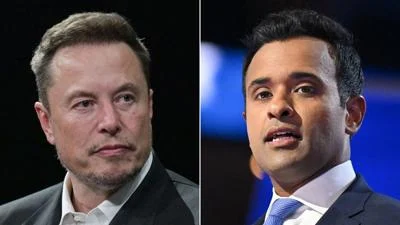In a move to reshape federal operations, President-elect Donald Trump has announced plans to create the Department of Government Efficiency (DOGE), tapping entrepreneur Elon Musk and biotech investor Vivek Ramaswamy as its leaders. DOGE is designed to enhance transparency, cut bureaucracy, and apply a tech-driven approach to governance, aligning with Trump’s vision of a “leaner, more efficient” federal government.
The new department would operate under the executive branch, tasked with identifying inefficiencies, reducing excess, and introducing business-style accountability across federal departments. DOGE represents a new era in U.S. governance, aiming to integrate private-sector expertise to modernize public systems.
The Vision Behind DOGE
President-elect Trump’s goal with DOGE is to address “outdated practices, wasteful spending, and excess layers of bureaucracy,” which he argues hinder effective governance. DOGE will work across all departments to streamline decision-making and reduce taxpayer burdens. This move mirrors global trends in which governments harness technology to drive efficient operations.
Roles for Musk and Ramaswamy
Musk’s background in technology with Tesla, SpaceX, and his ventures in AI and automation positions him to bring cutting-edge solutions to government functions. His understanding of data-driven decision-making will be key to modernizing outdated systems, providing much-needed innovation to long-standing processes.
Ramaswamy, known for his work in the finance and biotech sectors, adds valuable regulatory insight. As a co-founder of Strive Asset Management, he brings expertise in balancing compliance with innovation, an asset for DOGE’s mission to enhance government operations. Together, they represent a combination of tech and strategic reform that aims to streamline public services.
Targeted Government Functions
One of DOGE’s top priorities will be assessing government procurement and regulatory practices to eliminate redundancies and simplify processes. Ramaswamy has already proposed introducing digital compliance tracking, which could allow businesses and individuals to meet federal requirements more efficiently.
For example, Musk’s role could influence pilot programs in departments such as Energy, exploring ways to modernize infrastructure and processes. At the Department of Health and Human Services, DOGE might work on initiatives to enhance patient record systems, aiming to improve data security and accessibility.
Public Reaction and Anticipated Outcomes
The announcement of DOGE has sparked a range of reactions. Supporters see potential for transformative changes, with private-sector insights driving government accountability and efficiency. Some critics, however, are concerned that a private-sector influence might lead to excessive deregulation, risking compromises in public interest protections.
DOGE remains in the initial stages, but Musk and Ramaswamy are optimistic about the project’s potential. As they engage policymakers on funding and timelines, their goal is to ensure a “smarter, more responsive” government. If the project moves forward, it could redefine the relationship between technology and governance, potentially establishing a benchmark for the future of U.S. federal operations.























